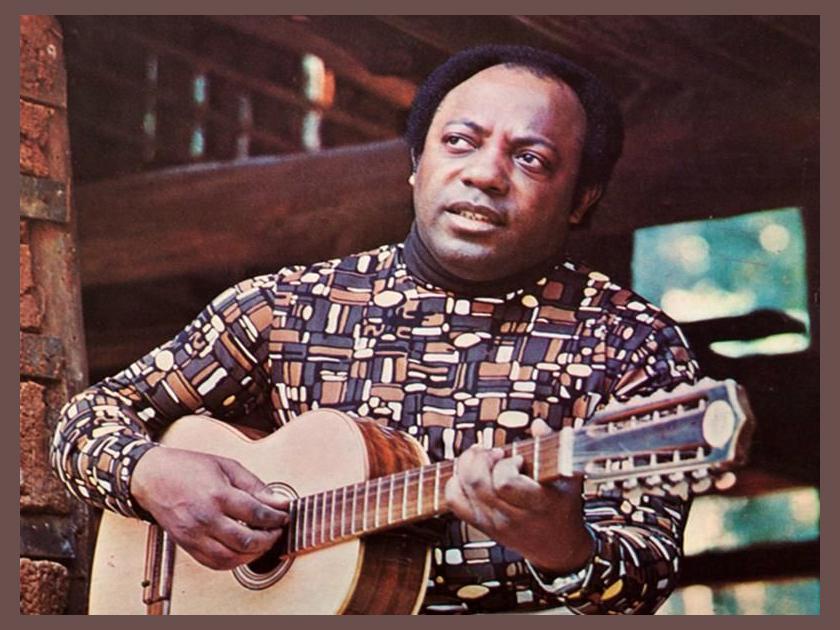 Adauto Santos
Adauto Santos
Adauto Santos: The Melancholic Melodies of the Northeast
Adauto Santos, a Brazilian singer-songwriter from the northeastern state of Ceará, has captivated audiences with his haunting and emotive music. Born into a humble family in 1959, Santos's early life was marked by challenges. Despite his impoverished upbringing, his passion for music burned brightly, and he began performing at local bars and festivals.
Triste Berrante: A Song of Loss and Longing
Santos's breakout hit, "Triste Berrante," became a national phenomenon in 1998. The song's plaintive melody and poignant lyrics, which tell the tale of a lost love, resonated deeply with listeners. "Triste Berrante" became an anthem of the Brazilian Northeast, a region known for its arid landscapes and its people's resilient spirit.
Challenges and Controversies
Santos's success did not come without controversy. Some critics accused him of exploiting the suffering of the region for commercial gain. However, Santos defended his work, arguing that his songs reflected the authentic experiences of his people. He remained committed to using his music to raise awareness of social issues and to celebrate the cultural heritage of the Northeast.
Discography and Collaborations
Over the course of his career, Santos has released numerous albums, including "Meu Sertão" (1997), "Desafio do Forró" (2000), and "Romaria do Sertão" (2010). He has also collaborated with renowned artists such as Alceu Valença, Gilberto Gil, and Elba Ramalho.
Members and Instrumentation
Adauto Santos typically performs with a band that includes:
* Adauto Santos (vocals, guitar)
* Edinho (accordion)
* Ivanildo (zabumba)
* Zé do Pife (pife)
* Tarcísio (bass guitar)
The band's instrumentation evokes the traditional sounds of the Brazilian Northeast, blending the melancholy of the berrante (a horn made from a bull's horn) with the lively rhythms of forró.
Legacy and Impact
Adauto Santos has become an iconic figure in Brazilian music. His songs continue to capture the hearts of listeners both in Brazil and abroad, and his work has helped to bring the cultural traditions of the Northeast into the wider Brazilian consciousness. Santos's music is a testament to the power of art to express the joys and sorrows of the human experience.
Adauto Santos, a Brazilian singer-songwriter from the northeastern state of Ceará, has captivated audiences with his haunting and emotive music. Born into a humble family in 1959, Santos's early life was marked by challenges. Despite his impoverished upbringing, his passion for music burned brightly, and he began performing at local bars and festivals.
Triste Berrante: A Song of Loss and Longing
Santos's breakout hit, "Triste Berrante," became a national phenomenon in 1998. The song's plaintive melody and poignant lyrics, which tell the tale of a lost love, resonated deeply with listeners. "Triste Berrante" became an anthem of the Brazilian Northeast, a region known for its arid landscapes and its people's resilient spirit.
Challenges and Controversies
Santos's success did not come without controversy. Some critics accused him of exploiting the suffering of the region for commercial gain. However, Santos defended his work, arguing that his songs reflected the authentic experiences of his people. He remained committed to using his music to raise awareness of social issues and to celebrate the cultural heritage of the Northeast.
Discography and Collaborations
Over the course of his career, Santos has released numerous albums, including "Meu Sertão" (1997), "Desafio do Forró" (2000), and "Romaria do Sertão" (2010). He has also collaborated with renowned artists such as Alceu Valença, Gilberto Gil, and Elba Ramalho.
Members and Instrumentation
Adauto Santos typically performs with a band that includes:
* Adauto Santos (vocals, guitar)
* Edinho (accordion)
* Ivanildo (zabumba)
* Zé do Pife (pife)
* Tarcísio (bass guitar)
The band's instrumentation evokes the traditional sounds of the Brazilian Northeast, blending the melancholy of the berrante (a horn made from a bull's horn) with the lively rhythms of forró.
Legacy and Impact
Adauto Santos has become an iconic figure in Brazilian music. His songs continue to capture the hearts of listeners both in Brazil and abroad, and his work has helped to bring the cultural traditions of the Northeast into the wider Brazilian consciousness. Santos's music is a testament to the power of art to express the joys and sorrows of the human experience.